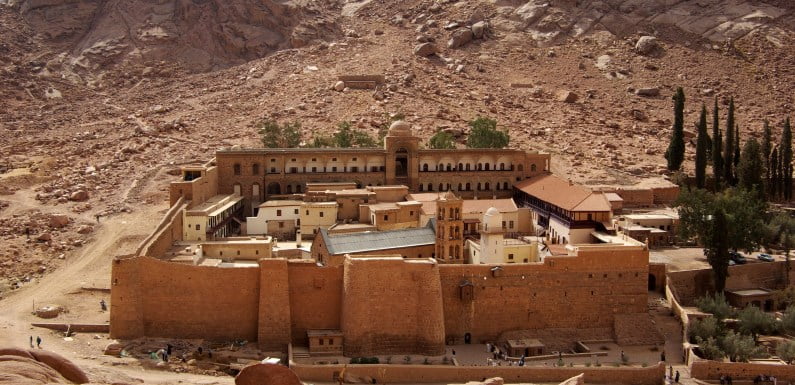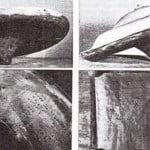
Ancient texts that were wiped out and then written over by monks residing in the Saint Catherine’s Monastery in Egypt reveal long-lost languages in this monastery’s ancient library.
Saint Catherine’s Monastery is a holy Christian place located in the Mount Sinai. It is widely known as the home place of one of the oldest libraries in the world.
This library holds over a thousand manuscripts and books that have a strong value and represent a real treasure.
Recently, a team of researchers applied contemporary technology to discover ancient valuable texts.
According to them, these texts were erased and, at some point, rewritten by monks who resided at the place.
A large portion of the texts was written in previously known languages, such as Greek, Arabic, and Latin.
However, a fair share was also written in some lost languages which are rarely referenced in our official historical record.
Manuscripts with many coats of writing are called palimpsest. As per the website of the Early Manuscript Electronic Library, about 130 of them are settled here in this monastery.
Richard Gray explained in the Atlantic that during the 7th century when the Islam was thriving, Christian localities in the Sinai Desert began to vanish.
Saint Catherine was no exception. Due to the monastery’s isolation, monks began to reuse old papers when the stocks came to an end
In order to crack the palimpsest’ hidden texts, researchers took numerous photos of the pages and illuminated each one with different lights.
They also photographed the pages with light reflecting on them from behind. This helped to “highlight tiny bumps and depressions in the surface,” wrote Gray.
They further entered their data into a computer algorithm in order to differentiate the more recent texts from the initial ones.
Starting from 2011, researchers have taken photos of 74 palimpsest including 6,800 pages. Among all the texts, they found 108 pages of previously undiscovered Greek poems.
Still, the most fascinating discovery was the writings in long-lost languages. For example, two of the deleted texts were written in Caucasian Albanian which Christians spoke in present-day Azerbaijan.
Michael Phelps, director of the Early Manuscripts Electronic Library said that the finding of Caucasian Albanian writings at Saint Catherine’s library increased their understanding vocabulary providing them with words such as ‘net’ and ‘fish’.
Other secret texts were written in a dialect so-called Christian Palestinian Aramaic. This vernacular combines Syriac and Greek and it stopped existing in the 13th century. Scholars eventually rediscovered it in the 18th century.
“This was an entire community of people who had a literature, art, and spirituality,” Phelps told Gray.
“Almost all of that has been lost, yet their cultural DNA exists in our culture today. These palimpsest texts are giving them a voice again and letting us learn about how they contributed to who we are today.”
Phelps and his colleagues are creating photos of the palimpsest available online, so other scholars can explore these secret writings as well.









